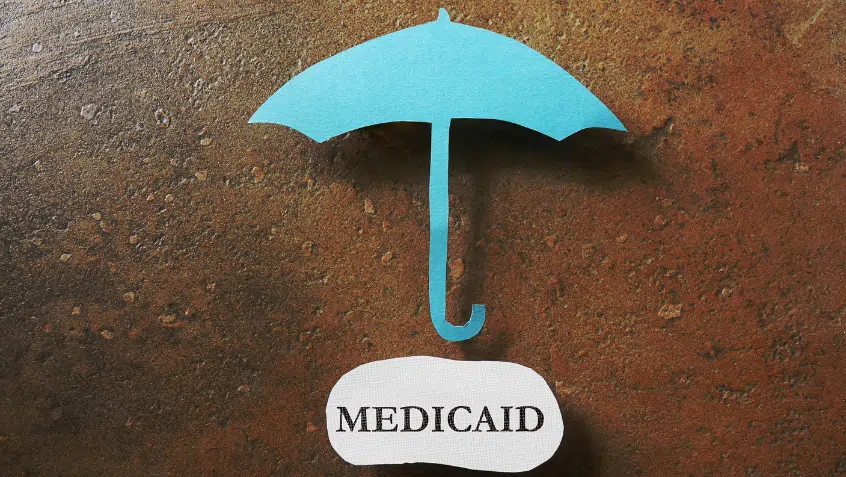Medicaid Work Requirements Continue to Be a Bad Idea

Amid reports that lawmakers are considering changes to limit Medicaid spending and access as part of a broader legislative package early this year, an updated analysis from KFF offers context to one controversial policy: Medicaid work requirements.
Proponents’ Arguments for Medicaid Work Requirements
Proponents of work requirements often frame them as “community engagement”—a way to “improve Medicaid enrollee health outcomes” or “make a positive and lasting difference in the health and wellness of our beneficiaries.” They also claim changes to eligibility rules are necessary because “individuals are sitting on the sidelines, missing out on the opportunity to learn new skills and participate in the economy.”
Most Medicaid-Covered Adults Already Working
But these arguments fall short. Work requirements are not effective or needed. There is no evidence they boost employment, and most people with Medicaid already work. KFF found that in 2023, the vast majority of adults covered by Medicaid (92%) were either working or unable to do so for reasons that qualified as exemptions under the prior Trump administration’s policies, such as having caregiving responsibilities, illness or disability, and attending school.
Reporting Requirements Threaten Coverage
Yet, Medicaid access for qualified or exempted individuals could still be at risk if they struggle to leap the administrative hurdles associated with reporting their working or exempt status. We saw this under the first Trump administration when, for the first time in the history of the Medicaid program, CMS allowed states to impose work and reporting requirements as a condition of eligibility. Arkansas’s policy went even further and mandated consequences for noncompliance, creating unnecessary red tape and causing over 18,000 people to lose coverage, many of whom were indeed Medicaid eligible.
Medicaid Remains a Target for Cuts at the State and Federal Levels
KFF explains this state level fight is ongoing: “Courts ultimately struck down many of the waiver approvals, including in Arkansas, and the Biden administration rescinded the remaining waivers, or they were withdrawn by the states. Currently, Georgia is the only state with a work requirement waiver in place (following a legal challenge to the Biden administration’s move to rescind it); however, several other states are pursuing work requirement waivers, anticipating a change in policy by the incoming Trump administration.”
At the federal level, Republican lawmakers have signaled plans to cut Medicaid in budget reconciliation legislation this year. While the contours of any such proposals are not yet known, a draft budget outline from House Republicans offers some insight. It includes “implementing work requirements for able-bodied adults without dependents to qualify for Medicaid coverage, as included in the House-passed Limit, Save, Grow Act (H.R. 2811). Certain populations would be exempted, such as pregnant women, primary caregivers of dependents, individuals with disabilities or health-related barriers to employment, and full-time students.”
H.R. 2811 is estimated to generate $100 billion in savings over 10 years according to the document and an analysis by the nonpartisan Congressional Budget Office (CBO). Critically, the CBO analysis also concluded the bill would not increase employment, its purported aim, but it would decrease coverage—millions would lose Medicaid, and millions more would be at risk.
Medicare Rights Opposes Limiting Medicaid Coverage
Medicare Rights strongly opposes curtailing Medicaid coverage, including through work requirements. Our 2024 Fact Sheet on this issue found that “As with many health policies, the effect would be most pronounced on people over 50 who often face significant challenges in meeting work requirements, often due to discrimination, and who may also have greater difficulty with compliance reporting. The health consequences of losing Medicaid for older adults can be especially severe, and the economic consequences potentially devastating. Self-reported health status—a strong indicator of well-being—tends to decline with age and to be closely related to income status.
Take Action to Protect Medicaid
As Congress contemplates next steps on budget reconciliation, we need to send a clear message: Don’t cut Medicaid! Join Medicare Rights and advocates across the country today, February 6, for a National Day of Action to Defend Medicaid.
- Use this call-in line (provided by SEIU) to reach your lawmakers: 866-426-2631.
- Tell them to oppose any Medicaid cuts. Whether it’s work requirements, eligibility changes, or reduced funding, a cut is a cut.
- A cut to Medicaid is a cut to Medicare. The programs work together to provide the services and supports people need.
- And the outcome from any cut is the same: older adults, people with disabilities, and their caregivers would lose access to needed health and long-term care.
- Medicaid is a lifeline for over 7 million older adults and 12 million people with Medicare. Slashing the program would cause serious and lasting harm.
- Be sure to personalize your message! View this map to learn what percentage of people in your Congressional district rely on Medicaid and share that number with your lawmakers. Additional resources to support your advocacy are available in this Medicaid Defense Resource List.
Further Reading
Read the KFF analysis, Understanding the Intersection of Medicaid and Work: An Update.
Read a Medicare Rights Fact Sheet on What’s at Stake: Medicaid Work Requirements.
The Latest
Most Read
Congress Moves to Cut Medicaid
 Threats to the Social Security Administration and to Benefits Continue to Raise Alarm
Threats to the Social Security Administration and to Benefits Continue to Raise Alarm House Adopts Senate Budget Plan, Laying the Groundwork for Significant Health Care Cuts
Trump Administration and DOGE Eliminate Staff Who Help Older Adults and People With Disabilities
Add Medicare to Your Inbox
Sign up to receive Medicare news, policy developments, and other useful updates from the Medicare Rights.
View this profile on InstagramMedicare Rights Center (@medicarerights) • Instagram photos and videos








